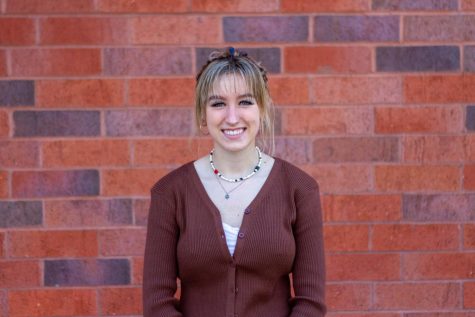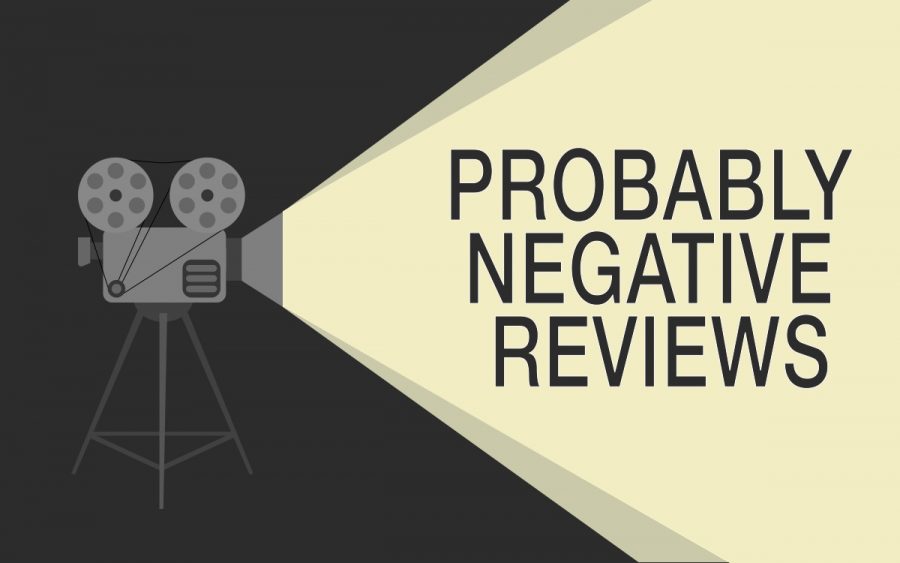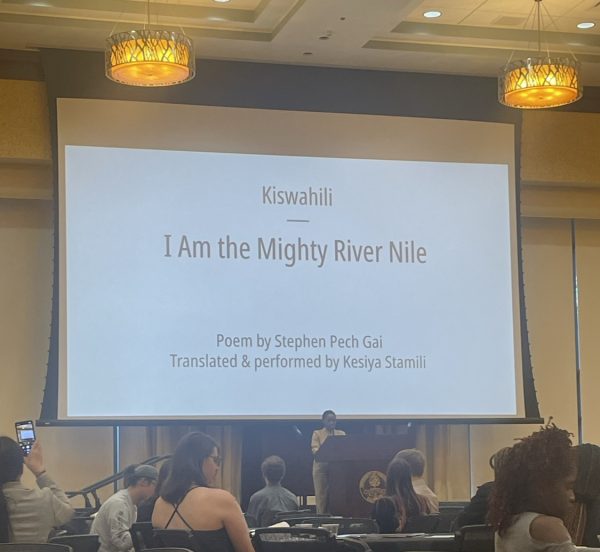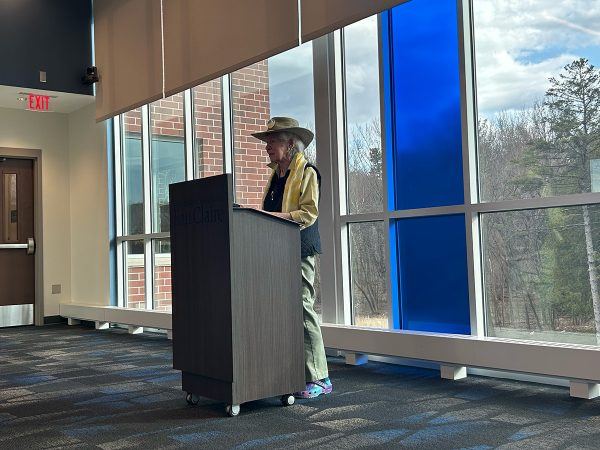Probably negative reviews
A young Catholic school girl attempts to understand her sexuality in this coming-of-age film.
Photo by Hailey Thorsen
I would consider myself a pretty fearless individual — spiders don’t freak me out, nor do snakes or ghosts.
I pride myself on being able to watch horror movies by myself and not even flinch when there is a jump-scare.
However, there is one thing I truly fear: church camps.
Now, we don’t have time to unpack all of that, but the film “Yes, God, Yes” by Karen Maine provides a bit of an understanding to my fear.
This debut film is a work of satire focused on the idea of religious repression, set in the early 2000s in Midwest America.
We follow a high school junior named Alice (Natalie Dyer) who attends a Catholic school where the students endure strict abstinence-only education, where premarital sex is forbidden and masturbation is a big no-no that leads to “damnation for all eternity.”
The film explores the problems which arise from sex-phobic teaching and presents the issue in a way that is both comedic and serious.
Alice is an innocent girl who believes everything her school preaches so, when a rumor is started at school accusing Alice of committing a heinous sexual act at a party, Alice is dumbfounded. Alice is so uneducated in sex, that she spends half the film attempting to figure out what she was even accused of.
God-fearing Alice believes her only chance to redeem her sins is to sign up for a four-day spiritual retreat, provided by her school.
Alice believes she is on the way to salvation from her sinful thoughts and urges but the moment she spots the attractive Chris (Wolfgang Novogratz) those impure thoughts come flooding back.
The film centers around Alice’s sexual awakening in an environment that demonizes sex and shames teenagers’ natural urges.
The spiritual retreat defines my fear of church camp through its use of emotional manipulation and inappropriate conversations/behavior between kids and adults.
Alice is forced into a revelation about her Catholic beliefs as she watches her role model’s hypocrisy: from her morality teacher, Father Murphy (Timothy Simons) watching porn on his school computer to Alice witnessing her camp counselor, Nina (Alisha Boe) who accused Alice of lustful acts engage in those acts herself with another fellow counselor.
Alice goes on a path of discovery where she realizes her role models don’t know everything, and faith is something you define for yourself: it is not defined by another person or group.
Maine does an incredible job illustrating the confusion a lot of kids have in strict faith-based schools.
Trying to understand your body’s changes — all while being told those changes are sinful — can really mess with a person’s identity and self-image. Maine does all of this while providing comedic relief in a light way that makes the controversial topic easier to talk about.
The film comes to a close with Alice meeting a lesbian at a bar who changes her perspective. Alice learns that no one really knows all the answers so why put so much emphasis on shaming natural urges.
Overall, the film kept me laughing and at times pondering the true purpose of faith. It is an amazing film and provides great lessons that everyone will enjoy.
Hinrichs can be reached at [email protected].

Allison Hinrichs is a third-year journalism and multimedia communication student. This is her fourth semester at The Spectator. Allison loves being outdoors and anything that gives her an adrenaline rush. She loves hiking, rock climbing, snowboarding and photography.










